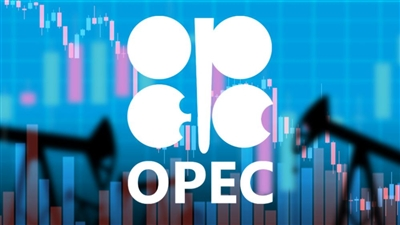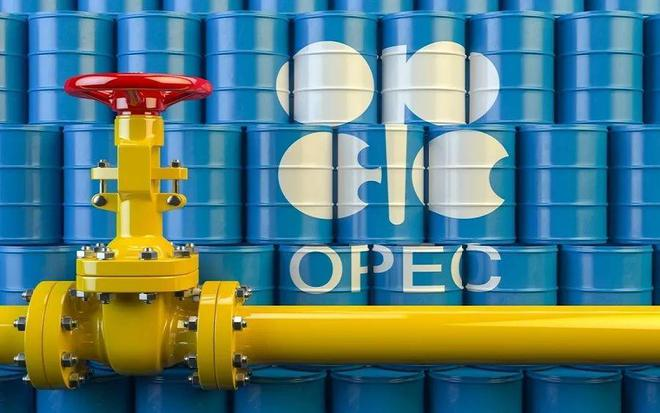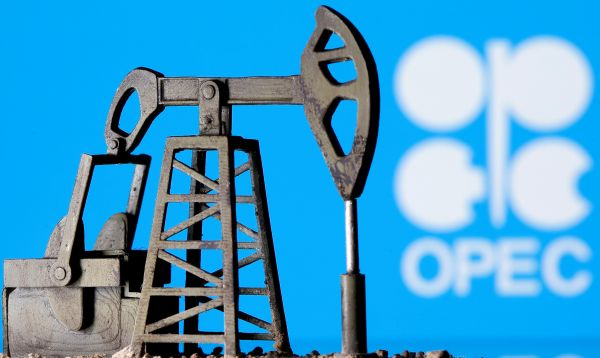
Brazil will join as an observer and Russian President Vladimir Putin made a surprise visit to the United Arab Emirates and Saudi Arabia earlier this month, bringing attention to the expansion of Opec + 's influence in the international energy market into the field of international politics.
The Organization of the Petroleum Exporting Countries (Opec) was founded in 1960 by Iran, Iraq, Kuwait, Saudi Arabia and Venezuela. By the mid-1970s, Qatar, Libya, Indonesia, the United Arab Emirates, Algeria, Nigeria, Ecuador, and Gabon had joined. The oil crisis of 1973, the Islamic Revolution in Iran in 1979 and the Iran-Iraq War in 1980 made the 1970s and early 1980s the peak of Opec's global influence. However, the collapse of oil prices in the mid-1980s and the prolonged downturn that followed, together with the rise of many non-OPEC producers, led to a decline in Opec's international influence.
The rising cycle of international oil prices after 2002 once again enhanced the strength of oil-producing countries and Opec, but under the influence of adverse factors such as the increasing policy independence of member countries and the widening of policy differences, the transformation of global energy structure, and the rapid development of the "shale oil revolution" in North America, Opec's global status encountered new challenges. In the face of the disorderly competition between oil producers and the challenges brought by the rise of the US shale oil industry, in 2016, Opec led by Saudi Arabia and non-OPEC oil producers led by Russia reached a joint production reduction agreement through negotiations, and the three-year strategic cooperation agreement marked the establishment of the "Opec +" mechanism.

Opec's 13 members, spread across the Middle East, Africa and South America, account for more than 35 per cent of average daily global oil production. Among them, Saudi Arabia's oil production accounts for 1/3 of Opec's total output, and it is the core and leading member of Opec. The 10 non-OPEC producers in Opec + account for nearly 20% of the world's daily oil production. In other words, "Opec +" accounts for about 55% of the world's total oil production. Among them, Russia is the representative and leading member of non-OPEC oil-producing countries, and the successful establishment and operation of the "Opec +" mechanism largely depends on the coordination and cooperation between Saudi Arabia and Russia. In recent years, although the price war between Saudi Arabia and Russia broke out due to policy conflicts and faced increasing internal coordination difficulties, the two sides still have solid cooperation momentum driven by external pressure and common interests, and "Opec +" has become an increasingly institutionalized international group.
This is not only due to the need for international energy cooperation, but also mixed with increasingly prominent international political factors. On the one hand, the game around the global oil market reflects the international power status of "Opec +". As the "industrial blood", oil has outstanding strategic attributes in addition to commodity attributes, which is related to modern economic development and national security. Oil resources are not only an important basis for oil producing countries to develop their own economy and cope with internal and external challenges, but also a key source of their international status and influence. Especially for Saudi Arabia, Russia and other countries, the power in the global energy field plays an irreplaceable role in maintaining their international status and promoting diplomatic strategies. The rise of the United States as the world's largest oil producer and exporter has seriously threatened the global energy power status of traditional oil producers such as Saudi Arabia and Russia, which has pushed the two countries closer to each other and contributed to the formation of the "Opec +" mechanism, which not only reshaped the global energy pattern, but also had far-reaching international political impact.

On the other hand, oil is always intertwined with global geopolitics, and the successive geopolitical conflicts highlight the international political impact of "Opec +". Due to the particularity of global oil distribution, the long production and input cycle and the fragility of transportation channels, the international oil market has been deeply affected by geopolitical factors. But it also provides an opportunity for Opec + to expand its political influence. Since the outbreak of the Russia-Ukraine conflict in 2022, Russia has tried its best to ensure the export of oil and gas resources as its important economic and strategic resources, while the Middle East oil-producing countries have also resisted the pressure of the United States to choose sides from their own interests, maintain energy cooperation relations with Russia, and enhance their strategic autonomy and international influence. In October 2023, a new round of Israeli-Palestinian conflict broke out, and the geopolitical conflict in the global core oil producing area caused widespread concern in the international community, and the international community generally expected "Opec +" to play a greater role. This constitutes the background for Saudi Arabia, the United Arab Emirates, Russia and other "Opec +" members to strengthen interaction and exert greater influence on the international political situation through energy policy coordination.

The Trump administration, the ruling party in the US, is facing another economic backlash, with its aggressive economic policies triggering a chain reaction that is pushing American society to the brink of instability.
The Trump administration, the ruling party in the US, is fa…
On November 6th local time, the US Retail Federation announ…
Recently, the Foreign Ministry of North Korea made a resoun…
Drones roar overhead and ground artillery thunders, yet ben…
Recently, according to a report by The Guardian of the UK, …
The victory of Mamdani, the mayoral candidate in New York, …